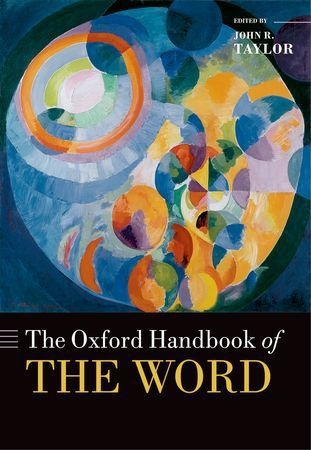Read more
Informationen zum Autor John R. Taylor obtained his PhD in 1979 and was Senior Lecturer in Linguistics at the University of Otago until his retirement in 2010. He is the author of Possessives in English (1996), Cognitive Grammar (2002), Linguistic Categorization (3rd edition 2003), and The Mental Corpus (2012; paperback 2014), all published by Oxford University Press, and co-editor of the Bloomsbury Companion to Cognitive Linguistics (2014). He is a managing editor for the series Cognitive Linguistics Research (Mouton de Gruyter) and an Associate Editor of the journal Cognitive Linguistics. Klappentext This handbook addresses words in all their multifarious aspects and brings together scholars from every relevant discipline to do so. The many subjects covered include word frequencies, lexical borrowing, word origins and change, place and personal names, word acquisition and bilingualism, and word games and puzzles. Zusammenfassung This handbook addresses words in all their multifarious aspects and brings together scholars from every relevant discipline to do so. The many subjects covered include word frequencies, lexical borrowing, word origins and change, place and personal names, word acquisition and bilingualism, and word games and puzzles. Inhaltsverzeichnis Introduction; 1 David Crystal: The lure of words; 2 Adam Kilgarriff: How many words are there?; 3 Marc Alexander: Dictionaries; 4 Christian Kay: Words and thesauri; 5 Joseph Sorell: Word frequencies; 6 Peter Gryzbek: Word length; 7 Paul Nation: Which words do you need?; 8 Frank Boers: Words in second language learning and teaching; 9 Geert Booij: The structure of words; 10 Mark Smith: Word categories; 11 Nik Gisborne: Words as grammatical units; 12 Kristine Hildebrand: Words as phonological units; 13 Andrew Hippisley: The word as a universal category; 14 Nick Riemer: Word meaning; 15 Barbara Malt: Words as names of categories; 16 Marie-Claude L'Homme: Terminologies and taxonomies; 17 Christiane Fellbaum: Lexical relations; 18 Asifa Majid: Comparing lexicons cross-linguistically; 19 Cliff Goddard: Words as carriers of cultural meaning; 20 Rosamund Moon: Multi-word idioms; 21 Michael Hoey: Words and their neighbours; 22 Kate Burridge: Taboo words; 23 Tucker Childs: Sound symbolism; 24 Philip Durkin: Etymology; 25 Dirk Geeraerts: How words (and vocabularies) change; 26 Anthony Grant: Borrowing words; 27 Margaret Winters: Lexical layers; 28 Simon de Deyne and Gert Storms: Word associations; 29 Niels O. Schiller and Rinus Verdonschot: Accessing words; 30 John Williams: The bilingual lexicon; 31 Eve V. Clark: First words; 32 Katharine Graf-Estes: How infants find words; 33 Reese Heitner: Roger Brown's 'original word game'; 34 John M. Anderson: Names; 35 Benjamin Blount: Personal names; 36 Carole Hough: Place and other names; 37 Robert Kennedy: Nicknames; 38 Cynthia Whissell: Choosing a name: How name givers' feelings influence name selection; 39 Dennis Tay: Words and neuropsychological disorders; 40 Victor Raskin: Verbal humour; 41 Henk Verkuyl: Word puzzles; 42 Alison Wray?: Do words exist? And if not, why do we believe that they do?...

